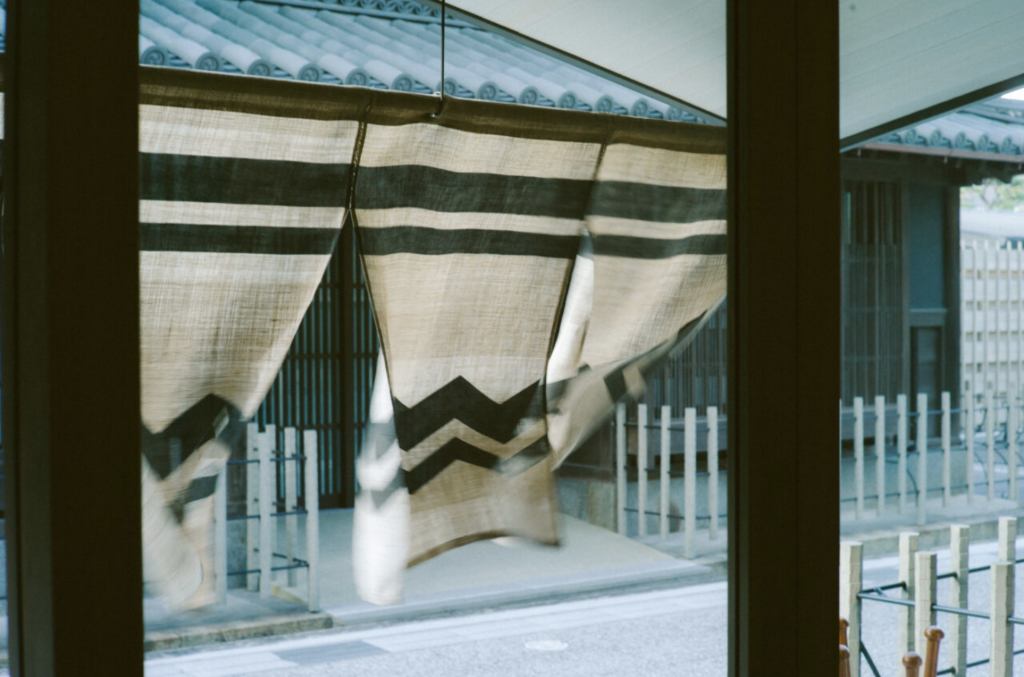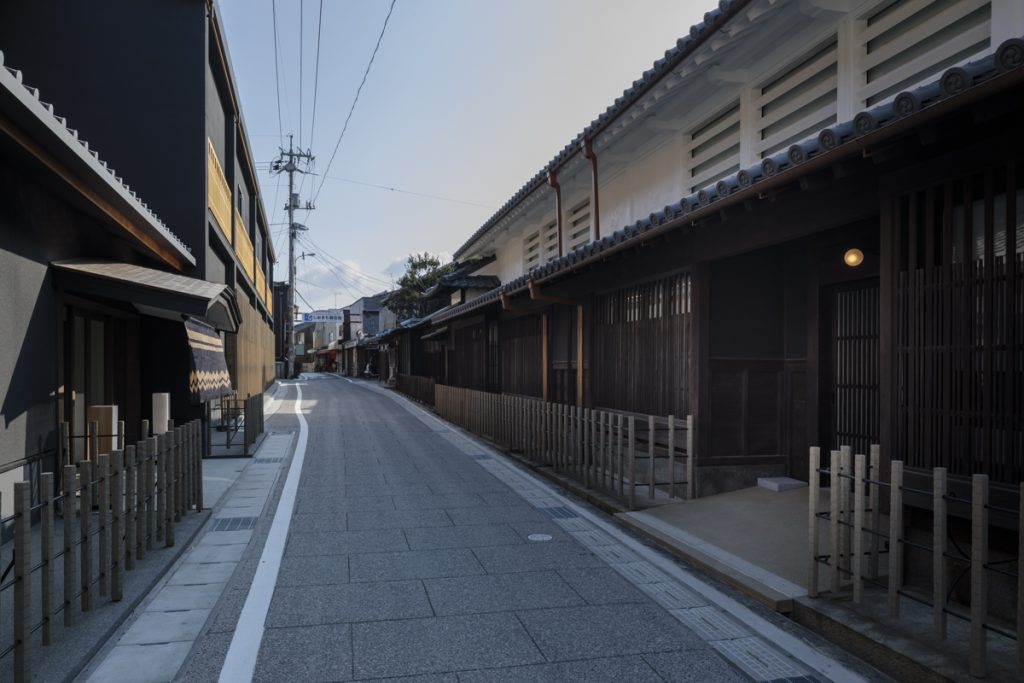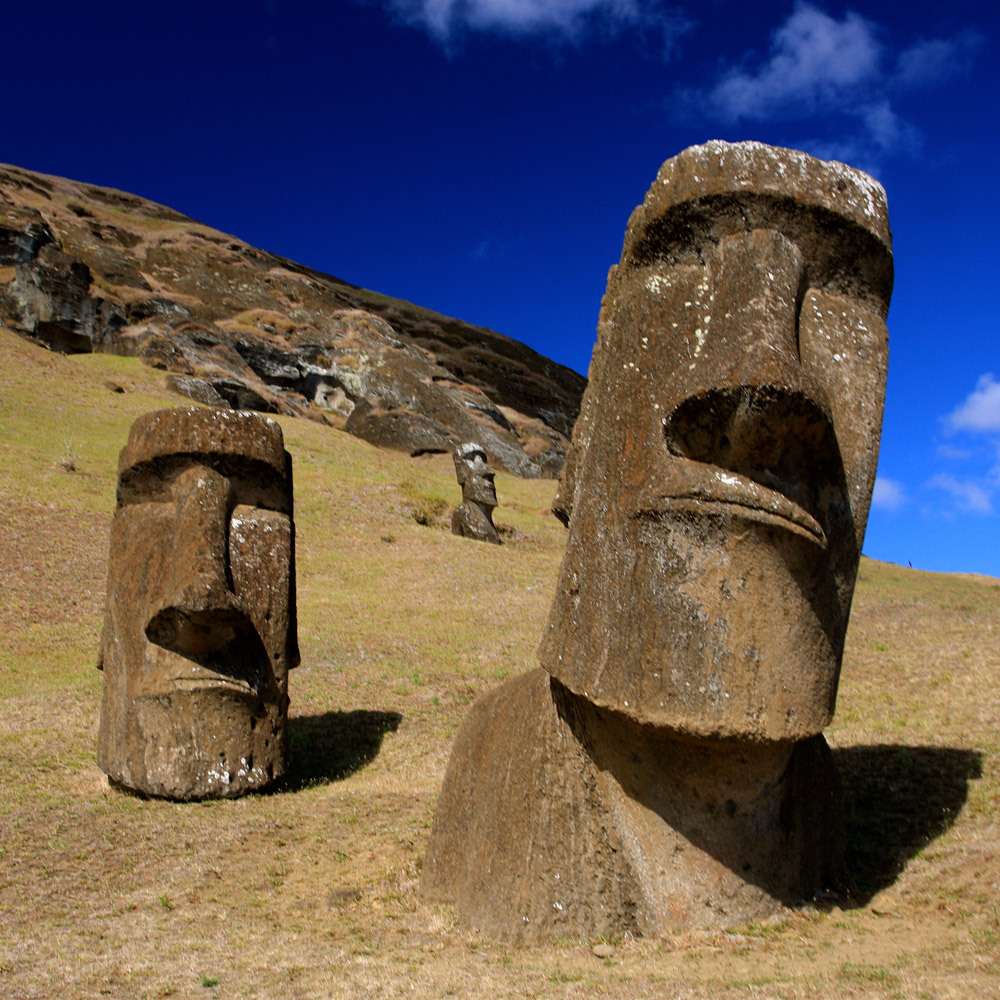A Dreamy Stay Inside the Island of Ikuchi’s Azumi Setoda
This modern ryokan-style hotel encourages comfort and serenity

Capturing the feeling of stepping into the lobby of Azumi Setoda, a modern ryokan-style hotel on Ikuchi (known as “lemon island”), can feel elusive. Open the front door and a wall with a calming wash of indigo comes into view. After being seated by the reception desk, small cups of freshly squeezed orange juice are served, a first taste of the sensorial experiences to come. In a country known for omotenashi (gracious hospitality), the greeting at Azumi Setoda transports guests into an environment that feels both comfortably relaxing and full of energy.

In the Setouchi region, along Japan’s largest inland sea, Azumi Setoda was dreamed up by hotelier Adrian Zecha (who also founded Aman Resorts). The area has become a bucket-list destination for many people—including cyclists who seek out the Shimanami Kaido route and its views of the Seto Inland Sea. With an optimal waterfront location, Azumi inhabits a 140-year-old estate originally built by artisans from Kyoto for the Horichi family, who were in the salt trade. To update the building, Zecha worked with Kyoto-based Shiro Miura, an architect trained in the sukiya style, who brought a focus on rustic simplicity existing in harmony with its surroundings. The restoration and expansion—with elements in wood, stone, granite, glass and soil—evoke a sense of calm and balance.

Two interior gardens, surrounded by contemporary kakine-fence-style walls, set the tone for the connection between nature and architecture. The plantings were chosen to exist harmoniously in the space as well as the damp climate. A garden with four trees representing the changing seasons was planted with the goal that at least one will be especially verdant and blooming at various times throughout the year. The other central garden surrounds a teahouse structure that can be reserved for private meals, meetings and yoga classes.

Guest rooms, minimalist in décor, inspire relaxation. The large, low-set beds are dressed with carefully tucked white sheets. Bedding for the two-story Niwa-suzumi suites can also be added for the tatami rooms. Lounging sofas at the foot of the bed offer a comfortable place to recline and act as a contemporary interpretation of the engawa wooden platform area in a traditional ryokan. Windows are covered with moveable yukimi shoji screens. Each style of suite prioritizes proximity to the natural environment—and private gardens surround dreamy bathrooms with hinoki cypress bathtubs.

Some guests relax in this oasis all day while others enjoy the many recreational activities in the area—from cycling along the waterfront and connecting bridges, to boating, fishing and stand-up paddle boarding. A short walk from Azumi, the Kojyo-ji Temple offers Zen meditation classes; visitors can also sign up for a coffee brewing workshop at Soil, a café in the neighborhood. Guests are invited to experience the Yubune public bath directly across from the Azumi, as well. Miura designed this modern bathhouse for the hotel—and the greater community. Inside, vibrant tile murals by Mai Miyake depict scenery and ocean life in the region.

At night the warm and serene dining room sets the stage for a menu of vegetables, locally caught fish and a variety of citrus grown nearby. Most ingredients have been sourced within a 30-mile radius. Though the presentations are modern and inventive, they also reflect the kaiseki dining principal of shun, which highlights seasonal ingredients at the peak of their flavor. Each plate is served with an explanation of components presented with hushed tones to maintain an intoxicating flow of the evening.

For their culinary offerings, chef Akita often visits the local farms, and pairs vegetables with local fish, meat and citrus. He accents a cauliflower and calamari dish with anseikan (pummelo). Dark greens are carefully propped up along sea bream and yuzu. Potatoes and kumquat complement a rich Taosha beef course. In the morning, a leafy green salad with tangy dressing and juicy citrus slices are served with a breakfast set of miso soup, fish, a simmered chicken dish, rice and pickles.

Comfort is also encouraged, including a reminder that pants, white T-shirts and Haori jackets can be provided while staying at Azumi. Altogether, the environment feels like visiting a friend with an elegant home—and the experience transports guests between traditional rituals of Japanese culture to a feeling that the future of hospitality lives in an environment where dreams take on the fragrant scent of lemons and sunsets glow pink across inland seas.
Hero image courtesy of Azumi Setoda












